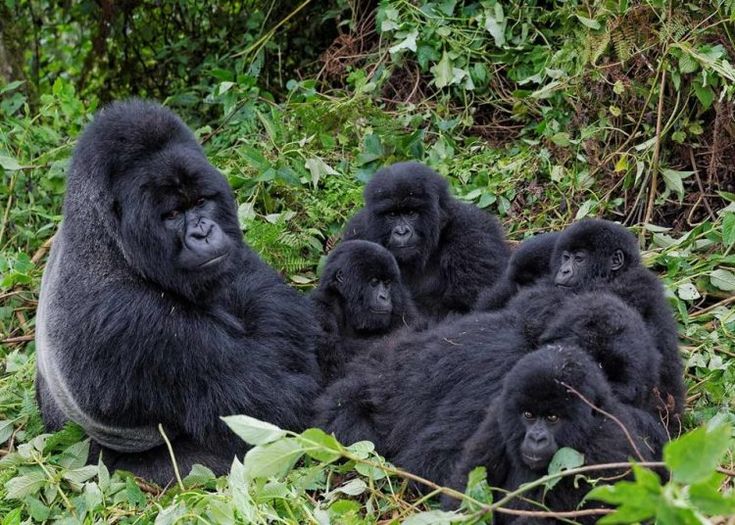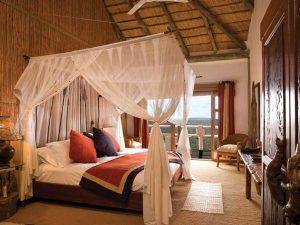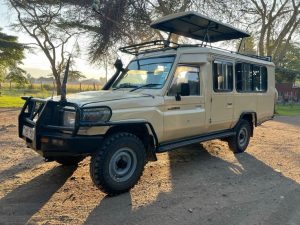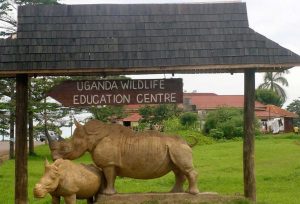Uganda is one of the few places on Earth where you can come face-to-face with mountain gorillas in their natural habitat. Known as the “Pearl of Africa,” Uganda offers an unmatched gorilla trekking experience that blends adventure, conservation, and cultural immersion. Gorillas in Uganda
If you’re planning a gorilla safari, this comprehensive guide answers the key question: Where can you see gorillas in Uganda? It also highlights the best parks, sectors, and practical tips to make your gorilla encounter unforgettable.
What Species of Gorillas Are Found in Uganda?
Uganda is home to the critically endangered mountain gorilla (Gorilla beringei beringei). Unlike lowland gorillas found in zoos or other African countries, mountain gorillas live exclusively in the misty, forested mountains of central East Africa.
These gorillas cannot survive in captivity, so trekking into their wild habitat is the only way to see them—making Uganda a premier destination for ethical, conservation-based gorilla tourism.
Where Can You See Gorillas in Uganda?
Uganda has two national parks where visitors can track and see mountain gorillas:
1. Bwindi Impenetrable National Park
Bwindi Impenetrable Forest is Uganda’s most famous gorilla destination and home to nearly half of the world’s remaining mountain gorillas. Located in southwestern Uganda, this UNESCO World Heritage Site offers the most accessible and diverse gorilla trekking experience in the country.
How Many Gorilla Families Are in Bwindi?
Bwindi has over 20 habituated gorilla families open to tourism, spread across four main trekking sectors:
- Buhoma (northwestern sector)
- Ruhija (eastern sector)
- Rushaga (southern sector)
- Nkuringo (southwestern sector)
Each sector offers unique terrain, vegetation, and community experiences. Visitors are assigned to a sector based on permit availability and accommodation location.
Why Choose Bwindi for Gorilla Trekking?
- Higher number of gorilla families = More trekking options
- Diverse terrain, from gentle slopes to rugged hills
- Community-based tourism (Batwa experiences, village walks)
- Well-established lodges and eco-lodging options
2. Mgahinga Gorilla National Park
Mgahinga Gorilla National Park is a smaller, more secluded park located in the Virunga Mountains, also in southwestern Uganda. It is part of the transboundary Virunga Conservation Area, which includes parks in Rwanda and the Democratic Republic of Congo.
How Many Gorilla Families Are in Mgahinga?
Mgahinga has one habituated gorilla family, known as the Nyakagezi group. This family is famous for being stable, playful, and relatively easy to track.
Why Choose Mgahinga for Gorilla Trekking?
- Fewer visitors = More intimate experience
- Stunning volcano scenery
- Opportunity to combine gorilla trekking with golden monkey tracking
- Cultural activities like the Batwa Trail
While it offers fewer permits than Bwindi, Mgahinga is ideal for travelers seeking solitude, photography, and off-the-beaten-path adventure.
When Is the Best Time to See Gorillas in Uganda?
You can trek gorillas year-round in Uganda, but the dry seasons are considered the best times to visit:
- June to September
- December to February
During these months, trails are less slippery, and the chances of rain are lower. However, wet seasons (March–May and October–November) offer lush green landscapes, fewer tourists, and better availability of gorilla permits.
Do You Need a Permit to See Gorillas?
Yes. All travelers must obtain a gorilla trekking permit, which is issued by the Uganda Wildlife Authority (UWA).
- Cost: $800 USD per person (as of 2025)
- Duration: One hour with a gorilla family, but treks can take 2–8 hours
- Age limit: Minimum 15 years old
Permits should be booked 3–6 months in advance, especially during peak travel months. You can reserve them through a trusted tour operator or directly via UWA.
How Do You Get to the Gorilla Parks?
There are two main ways to reach Bwindi and Mgahinga:
By Road:
- From Kampala: 8–10 hours via Kabale or Kisoro
- From Kigali, Rwanda: 4–5 hours (popular for shorter itineraries)
By Air:
- Daily domestic flights available from Entebbe to Kisoro or Kihihi Airstrip
- From there, transfer by 4×4 to your lodge or trekking center
Where Can You Stay During Your Trek?
Uganda offers a wide range of accommodation near gorilla trekking sectors:
- Luxury: Clouds Mountain Gorilla Lodge, Buhoma Lodge, Mount Gahinga Lodge
- Mid-range: Ichumbi Gorilla Lodge, Gorilla Safari Lodge
- Budget: Bwindi Backpackers, Rushaga Gorilla Camp
Choose lodging close to your trekking sector to avoid long morning drives.
What Should You Pack for Gorilla Trekking?
Being prepared enhances your experience. Essential gear includes:
- Sturdy hiking boots
- Rain jacket
- Lightweight long pants and sleeves
- Gloves (for gripping vegetation)
- Walking stick (usually provided)
- Water, snacks, and energy bars
- Insect repellent and sunscreen
- Binoculars and camera (no flash!)
Can You Combine Gorilla Trekking With Other Activities?
Yes! Uganda offers a full safari experience, so you can combine gorilla trekking with:
- Chimpanzee tracking in Kibale Forest
- Wildlife safaris in Queen Elizabeth or Murchison Falls National Parks
- Hiking in the Rwenzori Mountains or Mount Elgon
- Boat safaris on the Kazinga Channel or River Nile
- Cultural tours with the Batwa and local communities
Why Should You Choose Uganda for Gorilla Trekking?
Uganda stands out among gorilla trekking destinations for several reasons:
- Home to over 50% of the world’s mountain gorilla population
- Offers two national parks with unique trekking experiences
- Provides excellent value for trekking permits compared to Rwanda
- Combines wildlife, culture, and adventure
- Boasts safe, stable, and tourist-friendly environments
Conclusion
If you’re asking where to see gorillas in Uganda, the answer lies in the heart of Africa’s most pristine jungles: Bwindi Impenetrable Forest and Mgahinga Gorilla National Park. These two parks offer travelers a rare opportunity to encounter endangered mountain gorillas while supporting conservation and local communities.
Whether you choose the diverse terrain of Bwindi or the solitude of Mgahinga, your gorilla trekking experience in Uganda will be a once-in-a-lifetime memory—raw, emotional, and profoundly life-changing.




